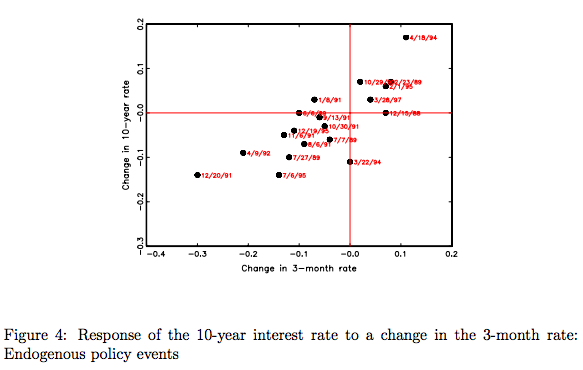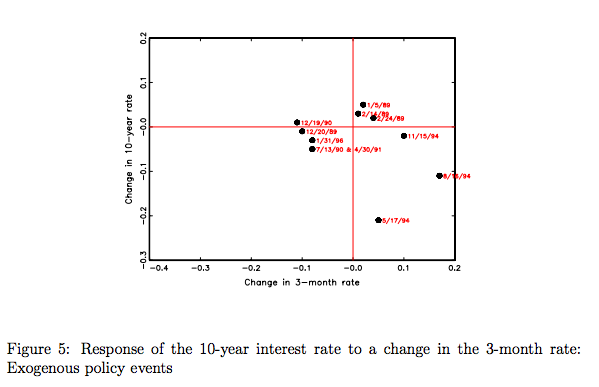One thing I go on about on this blog is how nominal GDP targeting—a market monetarist policy proposal that has even won over a small group of New Keynesians—is also the kind of policy an Austrian should want in the medium term. Of course, in the long term we'd like to abolish the Bank of England altogether, but even then we'd get, with free banking, something like a stable level of nominal GDP, so it's a pretty good target to work towards. The economist Nicholas Cachanosky wrote a paper in the Journal of Stock & Forex Trading about a year ago, which I missed, called "Hayek’s Rule, NGDP Targeting, and the Productivity Norm: Theory and Application" which lays a lot of the Austrian arguments for targeting the level of nominal income in a very clear and cogent fashion. I include some key extracts below:
The term productivity norm is associated with the idea that the price level should be allowed to adjust inversely to changes in productivity. If total factor productivity increases, the price level (P) should be allowed to fall, and if total factor productivity falls, the price level should be allowed to increase. A general increase in productivity affecting the economy at large changes the relative supply of goods and services with respect to money supply. Therefore, the relative price of money (1/P) should be allowed to adjust accordingly. In other words, money supply should react to changes in money demand, not to changes in production efficiency.
The productivity norm was a common stance between monetary economists before the Keynesian revolution. Selgin [14, Ch 7,8] recalls that Edgeworth, Giffen, Haberler, Hawtrey, Koopmans, Laughlin, Lindahl, Marshall, Mises, Myrdal, Newcome, Pierson, Pigou, Robertson, Tausig, Roepke and Wicksell are a few of the economists from different geographical locations and schools of thought who, at some point, viewed the productivity norm positively.
One of the attractive features of productivity norm-inspired monetary policy rules is the tendency of the results to mimic the potential outcome of a free banking system, one defined as a market in money and banking with no central bank and no regulations. Among the conclusions of the free banking literature is that monetary equilibrium yields a stable nominal income.
Throughout Cachanosky distinguishes carefully between an NGDP target and a productivity norm, though I think these are overstated; and between 'emergent' stability in NGDP and 'designed' stability, which he (like Alex Salter) thinks are importantly different (I am not convinced).
Cachanosky believes that the 2008 crisis implies that NGDP growth beforehand was too fast, and led to capital being misallocated, but I still doubt the Austrian theory of the business cycle makes any sense when you have approximately efficient capital markets.
Despite our differences, I think that Cachanosky's papers are very valuable contributions to the debate, and hopefully they can go some of the way to convincing Austrian economists that the market monetarist approach is not Keynesian.










